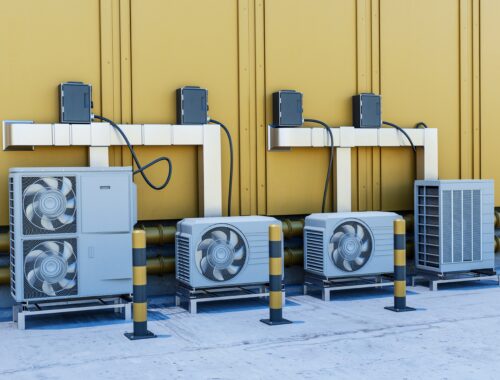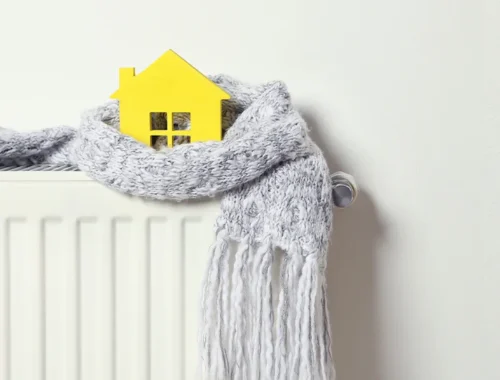When it comes to home comfort, a few things are as important as your HVAC (Heating, Ventilation, and Air Conditioning) system. It’s the unsung hero that keeps your home cozy in winter, cool in summer, and ensures you breathe clean air year-round. But choosing the right HVAC system can be a daunting task, given the variety of options available. In this comprehensive guide, we’ll explore what an HVAC system is, delve into the types available, discuss essential factors to consider, and provide guidance on making the right choice for your home.
Understanding Your HVAC Needs
Before diving into HVAC types and sizes, it’s crucial to understand your unique needs. Start by evaluating your local climate, the size of your home, and insulation quality. This will guide your choice toward a system that suits your specific circumstances.
What Is an HVAC System?
An HVAC system is a complex network of equipment designed to control the indoor environment of your home.
It consists of three main components:
- Heating: This component keeps your home warm during cold months. Common heating systems include furnaces, boilers, and heat pumps.
- Ventilation: Ventilation ensures the circulation of fresh air, removes pollutants, and maintains healthy indoor air quality. It’s achieved through various methods, including natural ventilation, mechanical ventilation, and air exchangers.
- Air Conditioning: Cooling is achieved through air conditioning systems, including central air conditioners, ductless mini-split systems, and heat pumps. These systems remove heat from your home, keeping it cool during hot weather.
Types of HVAC Systems
There’s no one-size-fits-all solution in the world of HVAC. Different systems cater to various needs and situations.
Here are some common types:
- Central Air Conditioning: A popular choice for whole-house cooling, central AC systems use ductwork to distribute conditioned air throughout your home. They are highly effective in maintaining consistent temperatures.
- Ductless Mini-Split Systems: Perfect for room-specific heating and cooling, these systems are energy-efficient and don’t require ductwork. Each indoor unit is controlled independently, allowing for customizable comfort.
- Heat Pumps: Heat pumps are versatile systems that provide both heating and cooling capabilities. They’re efficient and ideal for moderate climates.
- Furnace and Air Conditioner Combos: Traditional systems that offer reliable heating and cooling. They’re often used in regions with extreme temperature variations.
- Geothermal Systems: These highly efficient systems harness the stable temperature of the earth to provide both heating and cooling. They offer long-term energy savings, but installation can be costly.
HVAC System Factors to Consider
Choosing the right HVAC system involves several critical factors:
- Climate:
Consider your local climate. Do you experience extreme winters, scorching summers, or a mix of both? Your climate will impact the system type and size you need. - Home Size:
The size of your home plays a crucial role in system sizing. An oversized system will cycle frequently, while an undersized one will struggle to maintain comfort. Accurate sizing is essential. - Insulation:
Well-insulated homes require less heating and cooling, potentially allowing for a smaller system. Poor insulation may necessitate a more robust system to compensate for energy loss. - Energy Efficiency:
Look for systems with high SEER (Seasonal Energy Efficiency Ratio) ratings for air conditioners or HSPF (Heating Seasonal Performance Factor) ratings for heat pumps. Energy-efficient systems offer long-term cost savings. - Budget:
Establish a budget for your HVAC system, including installation costs. Consider the long-term benefits of energy-efficient systems and explore financing options or available incentives.
How to Choose the Right HVAC System for You
Choosing the right HVAC system can be simplified into a few steps:
- Evaluate Your Needs:
Start by assessing your heating and cooling needs. Understand your local climate, home size, and insulation quality. - Explore System Types:
Familiarize yourself with the different HVAC system types available and their pros and cons. Consider which type aligns best with your needs. - Size Matters:
Accurate sizing is vital. Consult with professionals who can perform load calculations to determine the correct system size for your home. - Energy Efficiency:
Opt for energy-efficient systems with high SEER or HSPF ratings to reduce long-term energy costs. - Additional Features:
Consider advanced features like zoning systems, programmable thermostats, and air quality enhancements to enhance comfort and efficiency. - Budget Wisely:
Determine your budget and explore financing options if needed. Take into account the potential long-term savings from energy-efficient systems.
Considering Additional Features
Modern HVAC systems offer advanced features for enhanced comfort and efficiency. These include:
- Zoning Systems: Control temperatures in different areas independently.
- Programmable Thermostats: Customize schedules for energy savings.
- Air Quality Enhancements: Improve indoor air quality for better health.
Where to Buy HVAC Capacitors Locally
HVAC capacitors are essential components. If replacements are needed, local HVAC supply stores or online retailers can be good sources. Properly diagnosing capacitor issues is essential before replacing them.
Best Time to Buy HVAC System
Timing your HVAC system purchase can lead to cost savings. Prices may vary seasonally, so consider buying during off-season or promotional periods.
Selecting the right HVAC system is an investment in your home’s comfort, efficiency, and air quality. It’s about more than just brand or company choices; it’s about understanding your unique needs and making an informed decision. At Jupiter Air Conditioning and Heating, we’re committed to helping you achieve the ideal indoor environment. If you have any questions or need assistance, feel free to contact us today. Your comfort and savings depend on making a thoughtful choice that suits your specific circumstances.



